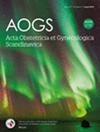How do women with Rokitansky syndrome and healthcare professionals reflect on the provision of uterine transplantation? Insights from an interview study in France, Norway, and Sweden
Abstract
Introduction
Uterine transplantation is currently intended for women with absolute uterine infertility. Since proof of the concept in 2014, many countries have started research programs and clinical activities. However, access to uterine transplantation remains limited given that only a few hundred transplants have been described worldwide compared with the 1.5 million women of childbearing age who suffer from absolute uterine infertility. The aim of this study was to investigate how limited access to uterine transplantation is perceived by women with Mayer–Rokitansky–Küster–Hauser syndrome and health professionals involved in uterus transplantation programs.
Material and Methods
We conducted a qualitative study with semistructured interviews in France, Norway, and Sweden with women with Mayer–Rokitansky–Küster–Hauser syndrome and health professional involved in uterine transplantation programs. The interviews were analyzed manually using thematic content analysis. The research questions were: How do (a) women with Mayer–Rokitansky–Küster–Hauser syndrome and (b) healthcare professionals involved in uterus transplantation programs perceive uterus transplantation and its accessibility 10 years after proof of concept?
Results
The interviews enabled us to highlight a number of themes addressed by doctors and women with Mayer–Rokitansky–Küster–Hauser syndrome, the main ones being the hope raised by this technique and the disappointment for those who do not have access to it, the lack of perception of the risks associated with the technique, and finally, an inequity of access and the training difficulties this entails for the teams.
Conclusions
Access to uterine transplantation varies widely across Europe owing to legislative restrictions and limited access due to resources or competence. The result is a feeling of injustice/misunderstanding and despair for these women who had planned to become parents and cannot benefit from a transplant. They appear to be poorly supported. Women who are ultimately unable to access a transplant program should perhaps be given psychological support to deal with this disappointment, whereas the minority who finally have had access to transplant programs are supervised by well-trained multidisciplinary teams.


 求助内容:
求助内容: 应助结果提醒方式:
应助结果提醒方式:


